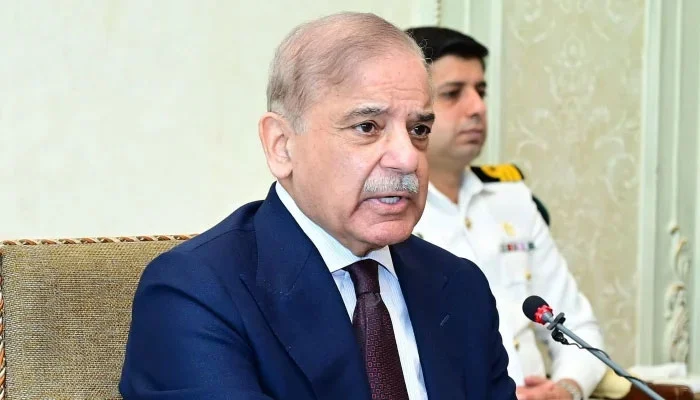A day after the Pakistan Bureau of Statistics (PBS) reported a significant decrease in the country’s annual inflation rate to 9.6%, Prime Minister Shehbaz Sharif acknowledged the role of the current government’s efforts and policies in achieving this improvement. On Tuesday, he highlighted that this is the first time in almost three years that inflation has dropped to a single-digit figure. PM Shehbaz shared the news on his official X account, noting the drop to 9.6% in August. He credited the government for stabilizing the economy and lowering inflation, emphasizing that this positive change was due to their hard work and effective measures. He expressed optimism about the country’s economic future while acknowledging that there is still more work to be done to ensure continued progress and stability.
On Monday, the Pakistan Bureau of Statistics (PBS) reported a major decrease in the inflation rate, which had been above 20% since May 2022 and even reached a high of 38% last May. These soaring inflation rates occurred alongside the government’s implementation of reforms required by an important International Monetary Fund (IMF) bailout program. The recent data showing a drop to 9.6% is a significant improvement compared to the high inflation experienced over the past year.
The Pakistan Bureau of Statistics (PBS) reported that consumer inflation rose to 9.6% year-on-year in August 2024, down from 11.1% in the previous month and much lower than the 27.4% recorded in August 2023. Prime Minister Shehbaz Sharif emphasized the government’s commitment to easing the financial burden on the public, acknowledging that while progress has been made, more efforts are needed. On a month-to-month basis, the Consumer Price Index (CPI) increased by 0.4% in August 2024, compared to a 2.1% rise the previous month and 1.7% in August 2023.
Last month, Moody’s Ratings upgraded Pakistan’s credit rating from Caa3 to Caa2, citing improvements in the country’s macroeconomic conditions and slightly better government liquidity and external financial positions. This upgrade reflects a reduced risk of default, consistent with a Caa2 rating, thanks to the IMF’s approval of a 37-month Extended Fund Facility (EFF) of $7 billion in July 2024. Pakistan’s foreign exchange reserves have nearly doubled since June 2023, though they still fall short of what is needed to cover external financing requirements. Despite these improvements, Moody’s warned that Pakistan’s debt affordability remains weak, posing a high risk to debt sustainability, and the country continues to rely on timely financial support from international partners to meet its debt obligations.


